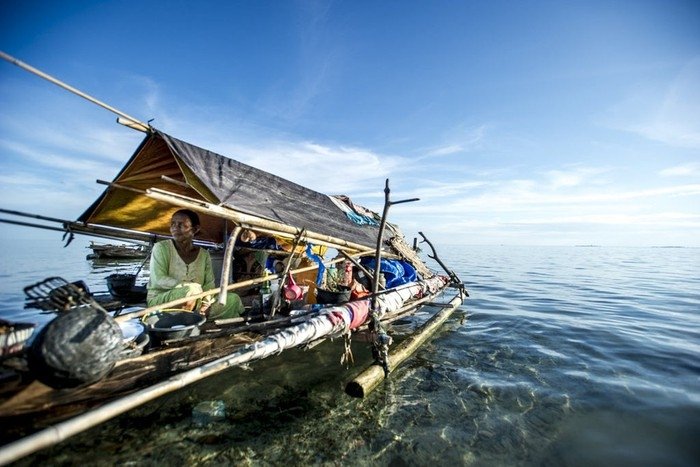Little is known about the `mermaid` tribe, whose life is closely linked to the sea and can dive up to 60m

They live on the waters of Southeast Asia, floating on boats at sea and do not even have a homeland of their own.
As an ethnic group of Malay origin, the Bajau people have lived almost exclusively on the water for centuries.
The Bajau people reside in Southeast Asia, specifically the southwest coast of the Philippines.
With no official state records or even much of a recorded history, the story of this clan of `mermaids` is rooted in their own unique cultural and folk traditions, with a
One of the interesting stories they told was about a man named Bajau – a man with a large body.
Over time, other tribes became jealous of the advantage he brought to their people, and plotted to kill him by throwing poisonous arrows at Bajau.
Making a living mainly from fishing, the Bajau people live on houses on boats called lepas. They often pull ashore to trade or seek shelter when there is a storm.
Because they were exposed to sea water so often and so early, they developed a mastery of the ocean that was unparalleled.
Furthermore, their bodies also evolved to adapt to the sea.
When humans dive into water, the spleen contracts and a number of oxygen-containing red blood cells are released into the blood.
In addition, the Bajau people also developed remarkable underwater vision.



Every day, the Bajau would spend many hours underwater hunting, and the only thing that made their diving job easier was a wooden goggles, they didn’t even have diving suits or fins.
Along with the development of society, more and more Bajau people are moving to live on the mainland (some groups have lived on the mainland for a long time because there is no criteria to completely determine who is a Bajau people).
For a variety of reasons, the current generation of Bajau people may be the last to live entirely at sea.


The stigma associated with living a nomadic life also forced many `merpeople` to abandon their lifestyle.
However, for the Bajau people, fishing is not just a livelihood and water is not just a resource.





